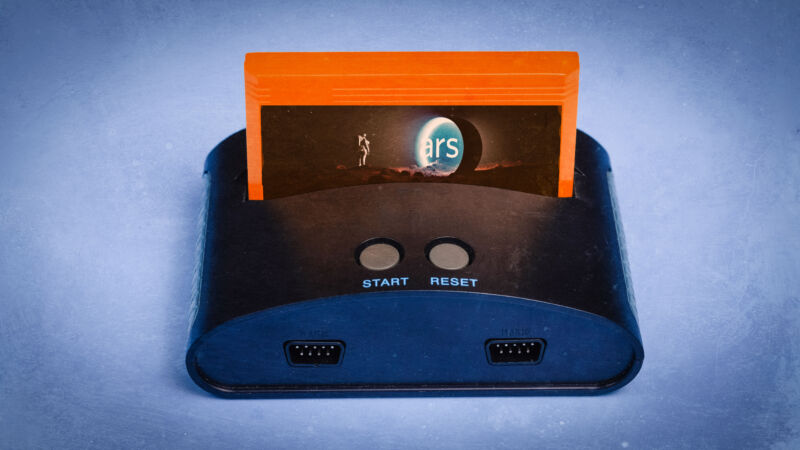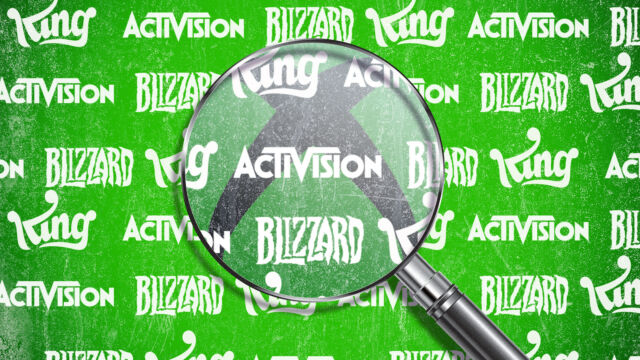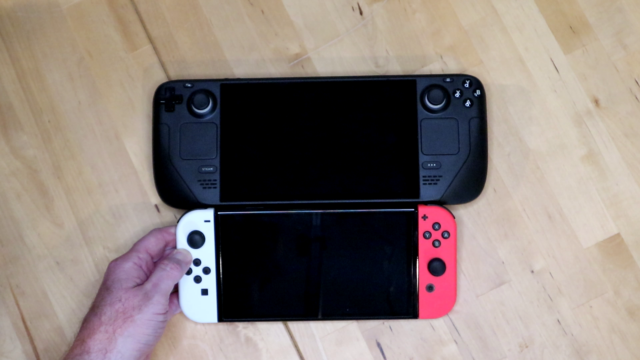
Gamers, and the game industry as a whole, can be a little too focused on what’s next. Newly released blockbusters can fade from the public consciousness in a matter of days, while the “next generation” of console hardware or a highly anticipated, years-in-the-making sequel can dominate the headlines.
In that kind of environment, it can be useful to review the major trends shaping the industry over a period longer than a few days. Looking back at the big gaming news of 2022, a few clear storylines emerge.
Big game publishers get even bigger
If there’s one trend that defined the game business in 2022, it was giant companies acquiring one another to get even more gigantic. This was the year major conglomerates spent major money to fill holes in their portfolios, like Sony spending $3.6 billion for Destiny maker Bungie; Take-Two spending $12.7 billion for Farmville maker Zynga; or the Embracer Group scooping up parts of Square Enix, Limited Run Games, and more.
But one proposed merger stood out above them all; the $68.7 billion marriage proposal that Microsoft offered to Activision Blizzard back in January. The move could be seen as an opportunistic one for Microsoft, since Activision’s market value fell quite a bit amid 2021’s many harassment and discrimination scandals and investigations. It’s also an acquisition that could offer beleaguered Activision CEO Bobby Kotick a golden parachute to escape the turmoil.

The major concern for gamers after the announcement was whether or not Activision franchises like Call of Duty would still be allowed on PlayStation and other non-Microsoft platforms. Microsoft has tried to tamp down those concerns with a series of increasingly fervent promises that it doesn’t want to lock Activision’s games to the Xbox.
Those assurances so far haven’t proven enough for Sony or for antitrust regulators who now seem poised to put the proposed merger in serious jeopardy. After prodding by US senators, the Federal Trade Commission officially filed suit to block the merger, citing antitrust concerns. Regulators in the UK and the EU are also in the midst of serious investigations that could lead to similar attempts to stop the merger.
Despite all the drama, the markets currently seem relatively confident that the deal will go through.
The year of weird portables

For decades now, portable gaming has been dominated by a single company: Nintendo. After the death of Sony’s PlayStation Vita, for years no one has even bothered releasing portable gaming hardware to challenge Nintendo’s Switch or the popular mobile gaming devices in everyone’s pockets.
2022 was the year that this started to change in a big way, as a number of companies pushed some decidedly off-kilter gaming portables. It started with the Analogue Pocket, which technically launched in late 2021 but started shipping in great numbers to pre-order customers this year. Out of the box, the Pocket’s solid industrial design and high-end screen make it great for replaying thousands of cartridges from Nintendo’s classic Game Boy and Game Boy Advance lines. But it was the introduction of new emulation cores this year that really turned this FPGA device into a must-have for retro gamers.
This was also the year Valve got into portable hardware. The Steam Deck has been at or near the top of Steam’s own sales charts since its launch, even as initial supply shortages have given way to wider availability. The hardware has some limitations—screen quality, battery life, sheer bulk, and Anti-Cheat compatibility among them. Still, the Linux-based device has proven “good enough” for putting thousands of “Deck Verified” or “Deck Playable” titles in PC gamers’ hands. No wonder Valve is already talking about a follow-up.
On the other end of the mass market spectrum, the quirky and delayed Playdate used 2022 to prove that portable gaming can be cute, lighthearted, and fun. The bright yellow portable doesn’t even have a backlight or a color screen, but it does have a novel crank controller on its side and a wide variety of inventive indie games powered by a robust homebrew community.
This year also saw a couple of companies releasing dedicated portable hardware focused on the streaming gaming market. Logitech’s G Cloud and Razer’s Edge 5G pair generic dual-stick controls alongside a generic, Qualcomm-powered Android device, allowing for easy access to various streaming services and classic emulators. It’s too early to say whether these devices will find a significant market that’s not served by existing smartphone controller attachments. Regardless, their mere existence helps cement the fact that handheld gaming in 2022 is not just for Nintendo anymore.
NFTs? Gamers say “No f’ing thanks”
As 2022 began, large portions of the game industry seemed poised to go all-in on NFTs and their promise of “unique,” sellable digital collectibles, either as in-game items or glorified trading cards. Bolstered by stories like Peter Molyneux’s startup raising $54 million in NFT sales in a single week, companies like Square Enix, Konami, and GameStop were just some of the biggest names to tease their big NFT plans early in the year. And while companies like Sega were publicly wary, Ubisoft was actively defending the in-game NFT program it launched in 2021.
As the year wore on, though, the bloom started to come off the NFT rose in a big way. Axie Infinity—once held up as the prime example of a successful “play to earn” game—saw its economy all but collapse before a major crypto hack wiped out any remaining confidence that was left in the game or its crypto tokens. GameStop’s NFT marketplace eventually launched to slow sales that got even slower as time went on, though it proved a boon to scammers selling unlicensed games. Ubisoft, meanwhile, demurely paused its own NFT sales and later tried to pretend it was never all that interested in the space.
High-profile failures like these—and a wider collapse in crypto and NFT prices in general—led to a massive vibe shift away from NFTs among many game companies. Games from Eve Online to Minecraft to Grand Theft Auto explicitly rejected the use of NFTs, at least in part because they had already built highly lucrative in-game economies without blockchain technology. The International Game Developers Association said it would take a “stronger stance” on the ethics of NFTs. And Sony seemed to go out of its way to note that its new line of PlayStation digital collectibles didn’t use crypto or the blockchain in any way.
NFT gaming still has plenty of proponents, and there will still be investors willing to place large monetary bets on the still-unproven space in 2023. But as the year concludes, there are fewer and fewer people who seem publicly confident that blockchain-based gaming items will power the “next big thing” in the industry.
https://arstechnica.com/?p=1906214

